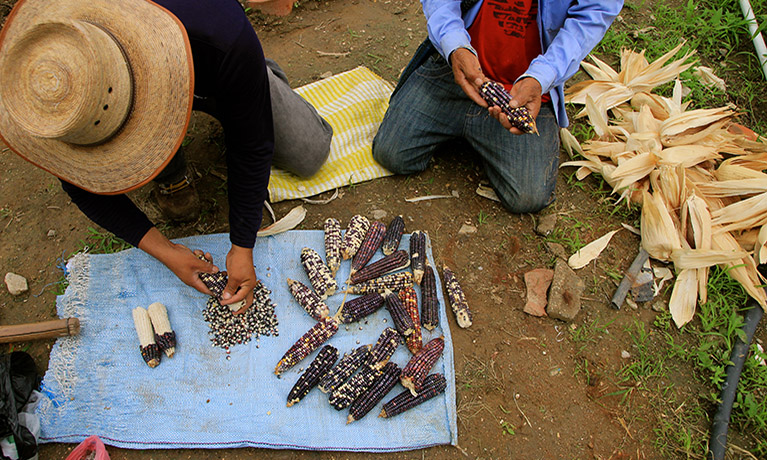Search
Understanding and supporting community agroecology through participatory research: A case study from the Maya-Achí territory, Guatemala

We’re sorry.
This event has ended.
See our upcoming events.
Thursday 09 February 2023
11:30 AM - 12:30 PM
Location
Cost
Event details
Speaker bio
Nathan Einbinder studied human geography at the University of Northern British Colombia and agroecology at the Colegio de la Frontera Sur, in Chiapas Mexico, where he completed his PhD in 2020. His research has centred on examining the impacts of development-induced displacement, to local agroecology movements, almost exclusively in the Maya-Achí territory of Guatemala. Currently Nathan leads an MSc in Regenerative Food, Farming, and Enterprise at Schumacher College in Devon.
Seminar topic
This presentation will illustrate fifteen years of ethnographic research in the Maya-Achí territory, Guatemala, as well as explore future participatory work with local farmers and organizations. Similar to other Indigenous regions in the country, the Achí territory was devastated by state-sponsored violence and displacement in the early 1980s. Efforts to recuperate the social fabric and local Speaker Form v1 – Revised 25/03/19 economy have been led predominately by external and international development organizations, with mixed and often questionable results.
My research has centred on community organizations that use agroecology as a vehicle for recovering Achí society. With a focus on native/ancestral crops and practices, rebuilding peasant autonomy and culture, and land regeneration, community associations and organizations have made some great achievements despite tremendous barriers, including persistent drought, continued political exclusion, and out-migration. While much of my work thus far has centred on documenting and analysing the agroecology movement, with a focus on understanding the motives behind adoption, my current and future research adopts a more explicitly participatory action approach, with objectives codesigned with local leaders to directly support their work in the communities.




